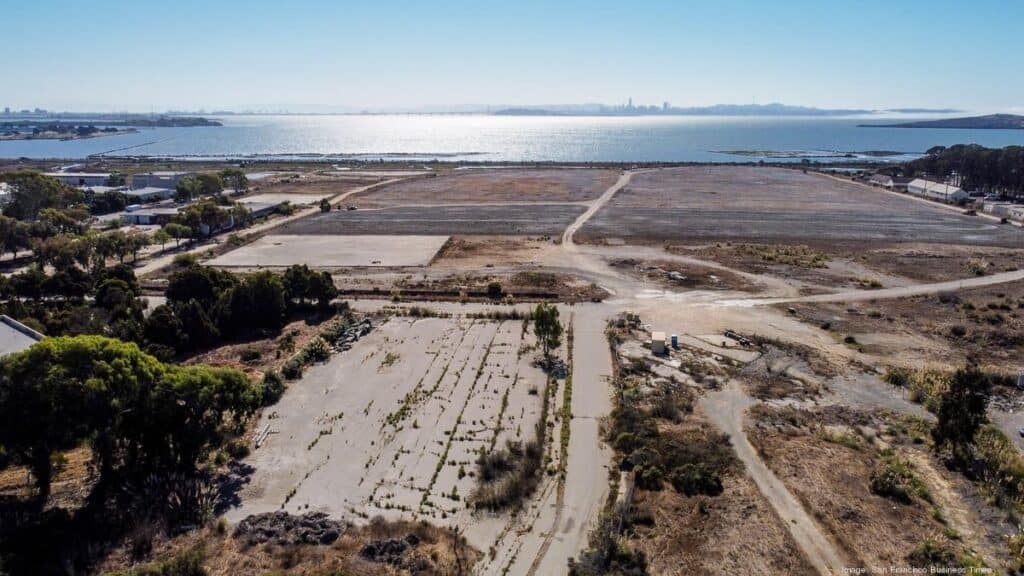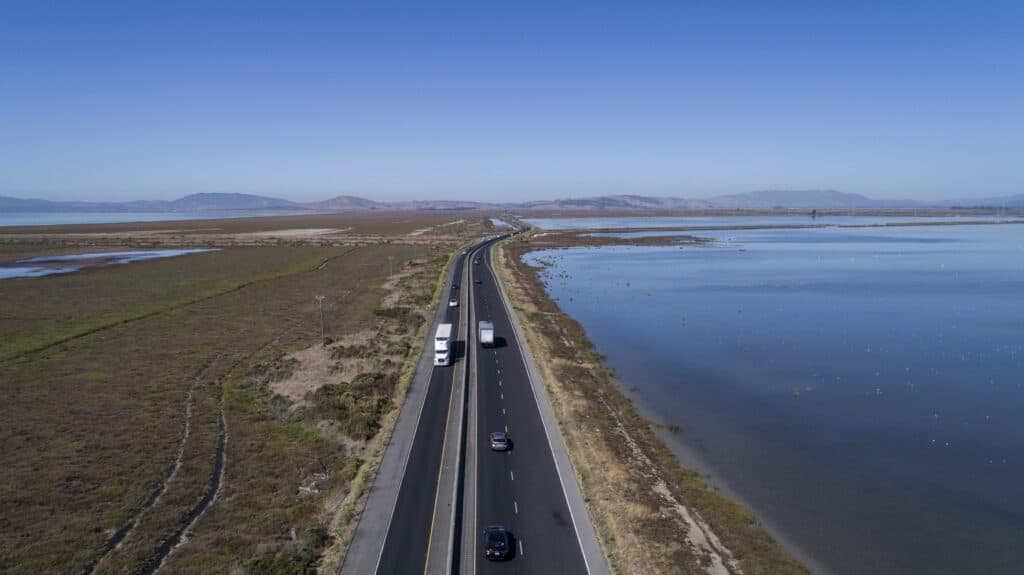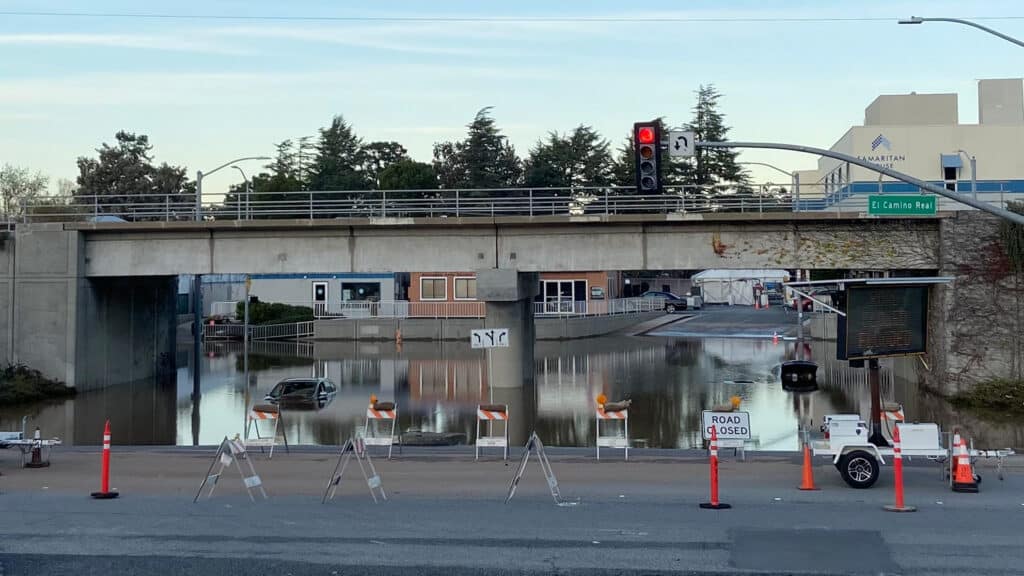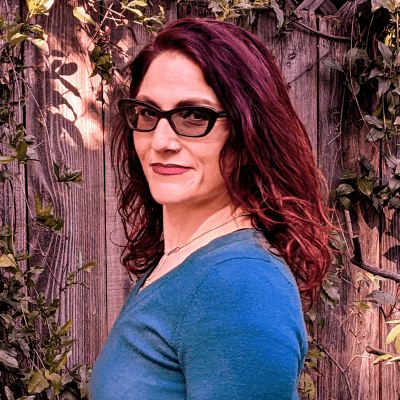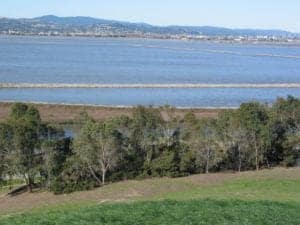 Cargill and its Arizona-based luxury housing developer DMB Associates withdrew their controversial bay fill plan in Redwood City back in May. They announced they would return with a revised development after working to avoid key federal environmental rules like the Clean Water Act from applying in any way to salt ponds in San Francisco Bay. If you ever wondered what the argument to support such an outrageous claim might look like, you’re in luck. Recently, the US Army Corps posted Cargill’s submittal on line. Click on that link with caution: at 37 megabytes and 369 pages, there is a lot more here to chew on than was found in the short, upbeat press release Cargill and DMB circulated for public consumption in May. In their May press release, Cargill/DMB stated that they wanted to “clarify certain aspects of the federal regulatory approval process.” No kidding. This document features Cargill’s lawyers’ blunt assertion that the salt ponds are unregulated and not part of the Bay. Central to the argument is the assertion that all the Bay water Cargill uses to evaporate and make salt – it’s not water at all. This water is instead called an “intermediate industrial product,” it’s “brine,” or sometimes it’s just “liquid.” Whenever Cargill refers to the ponds, it avoids the word “water.” Why? Because water sounds like something that should probably be regulated under the Clean Water Act. These key environmental laws are critical tools in limiting the pollution of our waterways and preventing unnecessary fill that destroys our wetlands, so important to the Bay. Those protections could jeopardize Cargill’s ability to fill and destroy these baylands. And so the new strategy is to get federal agencies to declare the ponds “exempt,” because Cargill is convinced it is above the law. This endless legal obstructionism is taking place behind closed doors and out of public view, where Cargill hopes its lobbyists and legal threats may have the most impact. And so I am sharing this obscure legal document with you today: because the Bay Area won’t stand for America’s largest private corporation escaping rules that apply to everyone else. Save The Bay is going to stay on the case, and we appreciate your help in spreading the word. UPDATE (9/27/2012): Cargill’s developer DMB confirmed the substance of this blog post on Wednesday. Contacted by a reporter, a DMB spokesman first claimed that Save The Bay’s blog post was “completely wrong” – and in the next breath confirmed that Cargill’s position is that the Redwood City salt ponds “are not subject to the Clean Water Act and Rivers and Harbors Act.” The spokesman also reiterated that Cargill and DMB remain “very committed” to pursuing the Bay fill proposal. Authored by Stephen Knight, Former Political Director
Cargill and its Arizona-based luxury housing developer DMB Associates withdrew their controversial bay fill plan in Redwood City back in May. They announced they would return with a revised development after working to avoid key federal environmental rules like the Clean Water Act from applying in any way to salt ponds in San Francisco Bay. If you ever wondered what the argument to support such an outrageous claim might look like, you’re in luck. Recently, the US Army Corps posted Cargill’s submittal on line. Click on that link with caution: at 37 megabytes and 369 pages, there is a lot more here to chew on than was found in the short, upbeat press release Cargill and DMB circulated for public consumption in May. In their May press release, Cargill/DMB stated that they wanted to “clarify certain aspects of the federal regulatory approval process.” No kidding. This document features Cargill’s lawyers’ blunt assertion that the salt ponds are unregulated and not part of the Bay. Central to the argument is the assertion that all the Bay water Cargill uses to evaporate and make salt – it’s not water at all. This water is instead called an “intermediate industrial product,” it’s “brine,” or sometimes it’s just “liquid.” Whenever Cargill refers to the ponds, it avoids the word “water.” Why? Because water sounds like something that should probably be regulated under the Clean Water Act. These key environmental laws are critical tools in limiting the pollution of our waterways and preventing unnecessary fill that destroys our wetlands, so important to the Bay. Those protections could jeopardize Cargill’s ability to fill and destroy these baylands. And so the new strategy is to get federal agencies to declare the ponds “exempt,” because Cargill is convinced it is above the law. This endless legal obstructionism is taking place behind closed doors and out of public view, where Cargill hopes its lobbyists and legal threats may have the most impact. And so I am sharing this obscure legal document with you today: because the Bay Area won’t stand for America’s largest private corporation escaping rules that apply to everyone else. Save The Bay is going to stay on the case, and we appreciate your help in spreading the word. UPDATE (9/27/2012): Cargill’s developer DMB confirmed the substance of this blog post on Wednesday. Contacted by a reporter, a DMB spokesman first claimed that Save The Bay’s blog post was “completely wrong” – and in the next breath confirmed that Cargill’s position is that the Redwood City salt ponds “are not subject to the Clean Water Act and Rivers and Harbors Act.” The spokesman also reiterated that Cargill and DMB remain “very committed” to pursuing the Bay fill proposal. Authored by Stephen Knight, Former Political Director










